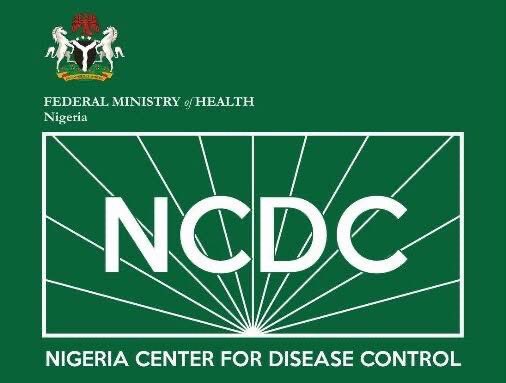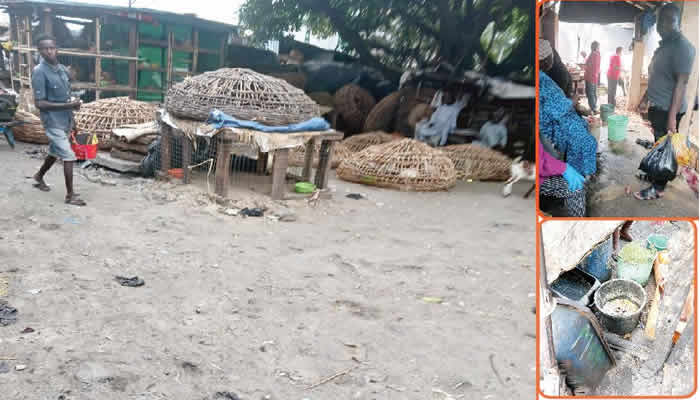The Nigeria Centre for Disease Control and Prevention has clarified that there are currently no cases of Ebola virus disease in the country.
The agency, in a public health advisory issued on Saturday, signed by its Director-General, Dr. Jide Idris, stated that it is working closely with relevant ministries, departments, agencies, and development partners to monitor disease occurrence and enhance Nigeria’s level of preparedness.
According to the NCDC, ongoing measures include heightened surveillance, particularly at the nation’s borders and points of entry, to ensure early detection of any potential cases.
The agency noted that infection prevention and control practices are also being reinforced in healthcare facilities nationwide to safeguard both patients and healthcare workers.
“There are no cases of Ebola virus disease in Nigeria, as of now. However, the NCDC, in collaboration with relevant Ministries, Departments, Agencies, and partners, continues to monitor disease occurrence and initiate measures to strengthen our preparedness in the country,” it stated.
In addition, the centre said its risk communication and community engagement structures have been activated to provide timely and accurate information to Nigerians, while also tracking and addressing rumours, perceptions, and misinformation.
“Ongoing efforts include heightened surveillance, especially at our borders and points of entry. There are also ongoing efforts to strengthen infection prevention and control measures in healthcare facilities across the country.
“Our risk communication and community engagement structures have also been alerted to ensure timely and accurate information is provided to Nigerians, as well as track and address perceptions, rumours, and misinformation,” it noted.
The Ebola outbreak in DR Congo comes at a time when much of Central and West Africa continues to grapple with overlapping health and humanitarian crises, including cholera outbreaks, malnutrition, and displacement.
The Democratic Republic of the Congo’s last outbreak of Ebola virus disease affected the north-western Equateur Province in April 2022. It was brought under control within three months, thanks to the robust efforts of the health authorities.
In Kasai Province, previous outbreaks of Ebola virus disease were reported in 2007 and 2008. In the country overall, there have been 15 outbreaks since the disease was first identified in 1976.
Ebola virus disease is a rare but severe, often fatal illness in humans. It is transmitted to people through close contact with the blood, secretions, organs, or other bodily fluids of infected animals such as fruit bats (thought to be the natural hosts).
Human-to-human transmission is through direct contact with blood or body fluids of a person who is sick with or has died from Ebola, objects that have been contaminated with body fluids from a person sick with Ebola, or the body of a person who died from Ebola.
In the ongoing outbreak, it said samples tested on September 3 at the country’s National Institute of Biomedical Research in the capital, Kinshasa, confirmed the cause of the outbreak as Ebola Zaire caused by Ebola virus disease.
As of September 5, DR Congo has recorded 28 suspected cases and 16 deaths, including four health workers.
The NCDC said there are vaccines and therapeutics available for some strains of the Ebola virus. However, early recognition, isolation of patients, and initiation of supportive treatment reduce morbidity and the probability of death.
“Equally important is the implementation of infection prevention and control measures in health facilities and homes, tracing and monitoring of contacts, and safe burial practices, which all significantly reduce the transmission of the disease from one person to another,” it further said.
It urged Nigerians to regularly wash their hands with soap under running water or use hand sanitizers when soap and water are not available. The agency also advised the public to avoid physical contact with anyone showing symptoms of an illness with an unknown diagnosis.
To reduce the risk of transmission from animals to humans, Nigerians were cautioned against contact with fruit bats, monkeys, and apes, as well as the consumption of raw or undercooked meat.
The NCDC stressed that animals should be handled only with gloves and protective clothing, while animal products must be thoroughly cooked before consumption.
Furthermore, the agency warned against direct contact with the blood, saliva, vomit, urine, or other bodily fluids of suspected or confirmed Ebola cases.
It added that anyone who develops symptoms of Ebola after traveling to or from an affected country, or knows someone who has, should immediately call the NCDC toll-free line on 6232 or contact their State Ministry of Health hotline for guidance.
In addition to the public advisory, the NCDC issued specific guidance for health workers, stressing the need for strict adherence to infection prevention and control measures.
The centre also issued travel advice, urging Nigerian citizens and residents to avoid all but essential travel to countries with confirmed cases of Ebola virus disease.
It warned that unnecessary travel to affected areas increases the risk of importation and spread of the virus within Nigeria.
For persons already in Nigeria who have travelled to or transited through countries with confirmed cases in the past 21 days, the agency advised vigilance for symptoms such as fever, sore throat, muscle pain, diarrhoea, weakness, vomiting, stomach pain, or unexplained bleeding and bruising.
It said that anyone experiencing these symptoms should immediately call the NCDC toll-free line or their State Ministry of Health hotline, remain in place to avoid exposing others, and await responders for proper medical care.
“On our part, we will continue to strengthen surveillance across the country, including our borders and airports, especially for travellers from affected areas; alerting our health workers to heighten their level of suspicion for suspected cases; enhancing our laboratory capacities for quick testing of suspected cases; as well as coordination with the World Health Organization, and the African Regional Health Authorities to monitor developments and share critical information.
“As you are aware, we continue to manage several other disease outbreaks, like Lassa fever, meningitis, diphtheria, mpox, measles, and anthrax, ravaging our communities. We will continue to provide periodic updates on these,” NCDC added.
WARNING: If You Are Not 18+, Don’t Click The Link Below 👇🫣
https://facultativethus.com/kx6iepv2qm?key=6c14bd1d68e1eba721851f19778f5efe
Please don’t forget to “Allow the notification” so you will be the first to get our gist when we publish it.
Drop your comment in the section below, and don’t forget to share the post.
Never Miss A Single News Or Gist, Kindly Join Us On WhatsApp Channel:
https://whatsapp.com/channel/0029Vad8g81Eawdsio6INn3B
Telegram Channel:
https://t.me/gistsmateNG



